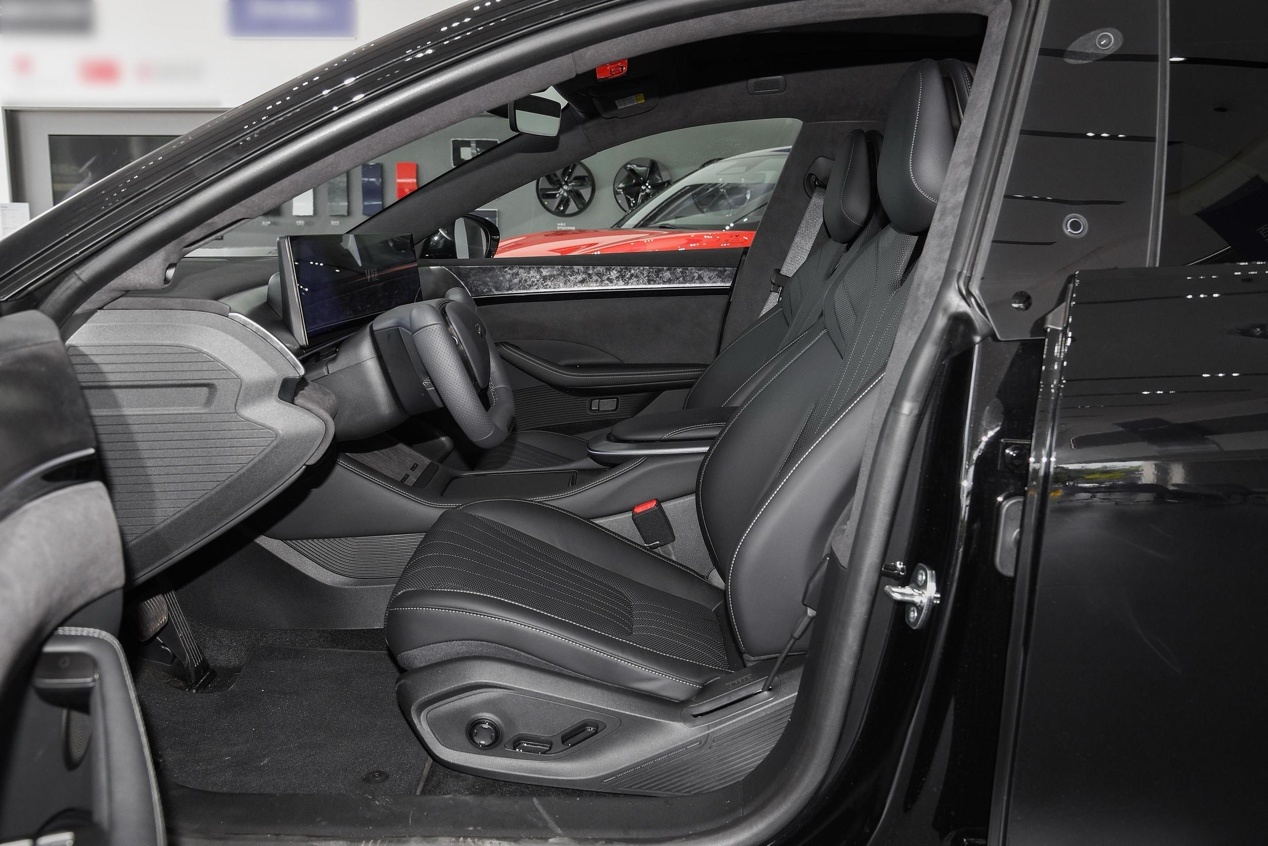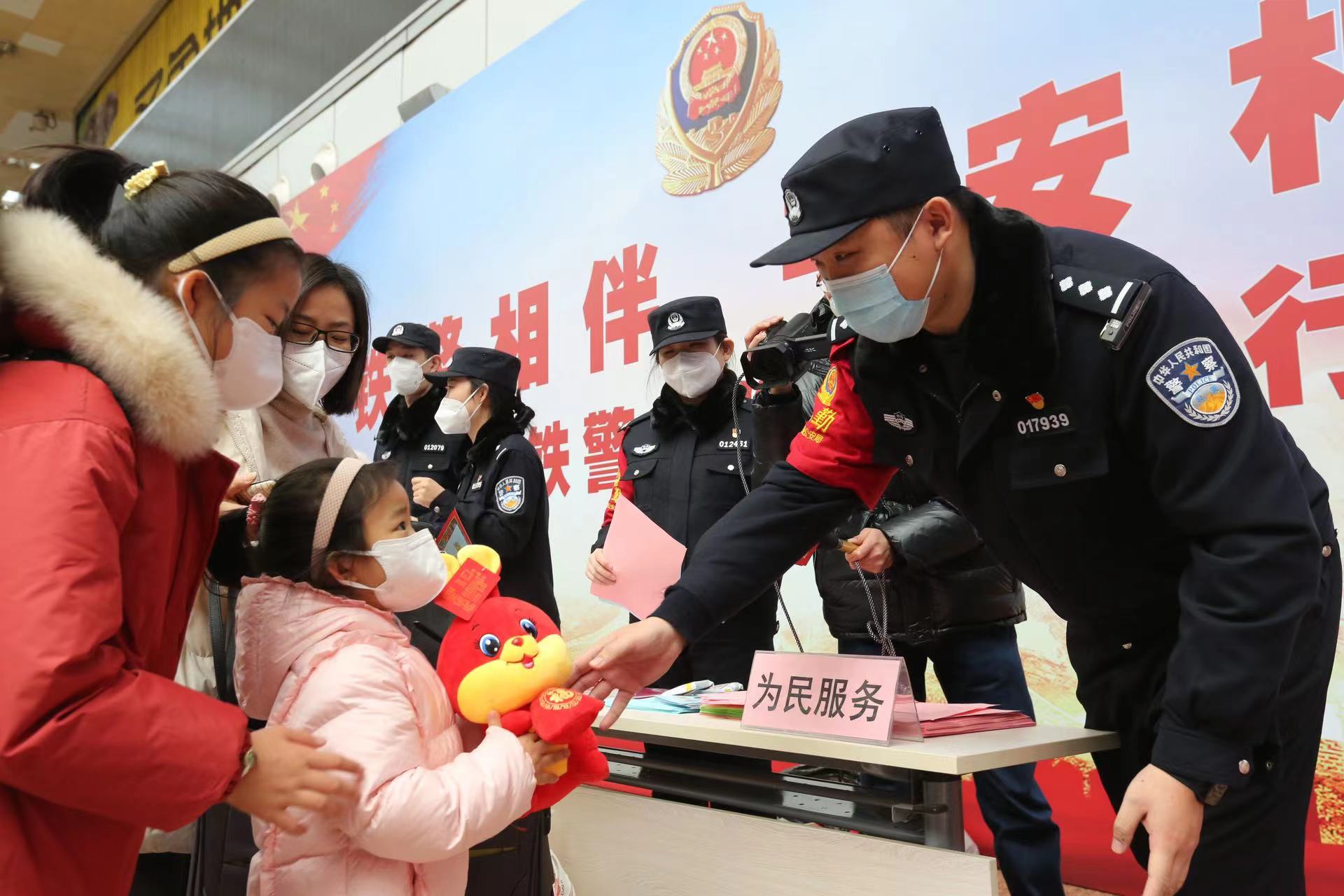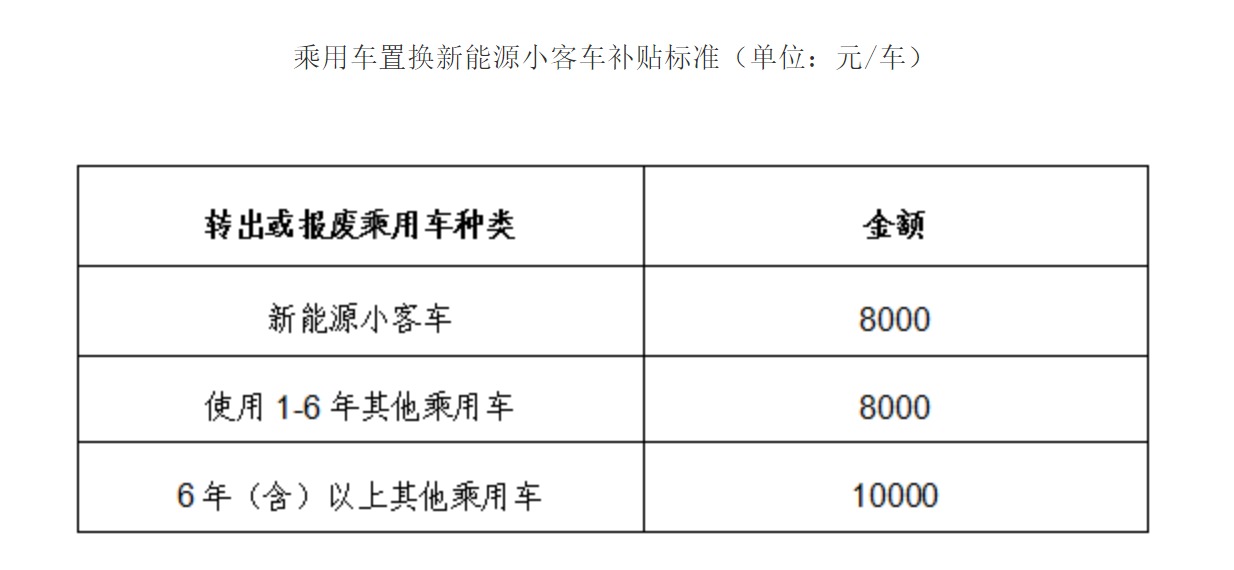Xinhua News Agency, Beijing, November 5th
The Central Committee of the Communist Party of China’s decision on several major issues concerning upholding and perfecting the Socialism with Chinese characteristics system and promoting the modernization of the national governance system and governance capacity.
(Adopted at the Fourth Plenary Session of the 19th Central Committee of communist party, China on October 31, 2019)
In order to implement the spirit of the 19th National Congress of the Communist Party of China, the Fourth Plenary Session of the 19th Central Committee focused on several major issues of upholding and improving the Socialism with Chinese characteristics system and promoting the modernization of the national governance system and governance capacity, and made the following decisions.
First, the great significance and overall requirements of adhering to and improving the Socialism with Chinese characteristics system and promoting the modernization of the national governance system and governance capacity
Socialism with Chinese characteristics system is a scientific system formed by the Party and the people in the long-term practice and exploration. All the work and activities of state governance in China are carried out in accordance with Socialism with Chinese characteristics system. China’s state governance system and governance capacity are the concentrated embodiment of Socialism with Chinese characteristics system and its implementation capacity.
Since its establishment, the Communist Party of China (CPC) has United and led the people, persisted in combining the basic principles of Marxism with the concrete reality of China, won the victory of the China Revolution, profoundly summed up the positive and negative experiences at home and abroad, constantly explored and practiced, constantly reformed and innovated, established and improved the socialist system, formed and developed the Party’s leadership and economic, political, cultural, social, ecological civilization, military and foreign affairs systems, and strengthened and improved national governance, making historic achievements. Since the 18th National Congress of the Communist Party of China, our party has led the people to promote the overall layout of "Five in One" and the "Four Comprehensive" strategic layout in a coordinated manner, and promoted the improvement of Socialism with Chinese characteristics’s system and the modernization of the national governance system and governance capacity, which has provided a strong guarantee for political stability, economic development, cultural prosperity, national unity, people’s happiness, social peace and national unity.
In the seventy years since the founding of New China, our Party has led the people to create a miracle of rapid economic development and long-term social stability, which is rare in the world. The Chinese nation has ushered in a great leap from standing up, becoming rich and becoming strong. Practice has proved that Socialism with Chinese characteristics’s system and national governance system are guided by Marxism, rooted in China, deeply rooted in Chinese culture, and won the support of the people. They are systems and governance systems with strong vitality and great advantages, and can continuously promote the progress and development of a country with a population of nearly 1.4 billion, and ensure that the Chinese nation with a civilization history of more than 5,000 years can achieve the goal of "two hundred years" and then realize the great rejuvenation.
China’s national system and national governance system have obvious advantages in many aspects, mainly: adhering to the centralized and unified leadership of the party, adhering to the party’s scientific theory, maintaining political stability, and ensuring that the country always advances along the socialist direction; Adhere to the obvious advantages of the people being the masters of the country, developing people’s democracy, keeping close contact with the masses and relying on the people to promote national development; Adhere to the rule of law in an all-round way, build a socialist country ruled by law, and effectively safeguard the remarkable advantages of social fairness and justice and people’s rights; Adhere to a national chess game, mobilize the enthusiasm of all parties, and concentrate on doing great things; Adhere to the equality of all ethnic groups, cast a solid sense of the Chinese nation’s community, and realize the remarkable advantages of common unity and struggle and common prosperity and development; Adhere to public ownership as the main body, the common development of various ownership economies and distribution according to work as the main body, and the coexistence of various modes of distribution, organically combine the socialist system with the market economy, and continuously liberate and develop the remarkable advantages of social productive forces; Adhere to the common ideals, beliefs, values and moral concepts, carry forward China’s excellent traditional culture, revolutionary culture and advanced socialist culture, and promote the remarkable advantages of all people’s ideological and spiritual unity; Adhere to the people-centered development thought, constantly safeguard and improve people’s livelihood, enhance people’s well-being, and take the obvious advantage of the road of common prosperity; Persist in reform and innovation, keep pace with the times, be good at self-improvement and self-development, and make the society full of vitality all the time; Insist on having both ability and political integrity, choose talents and appoint talents, gather talents from all over the world and use them.Cultivate the obvious advantages of bringing up more and better talents; Adhere to the party’s commanding guns, ensure that the people’s army is absolutely loyal to the party and the people, and effectively safeguard the obvious advantages of national sovereignty, security and development interests; Adhere to "one country, two systems", maintain the long-term prosperity and stability of Hong Kong and Macao, and promote the remarkable advantages of the peaceful reunification of the motherland; Adhere to the unity of independence and opening up, actively participate in global governance, and make continuous contributions to building a community of human destiny. These remarkable advantages are the basic basis for us to strengthen Socialism with Chinese characteristics’s road confidence, theoretical confidence, institutional confidence and cultural confidence.
Today, the world is experiencing a great change that has never happened in a hundred years, and China is in a critical period to realize the great rejuvenation of the Chinese nation. To conform to the trend of the times, adapt to the major contradictions and changes in our society, take charge of great struggles, great projects, great undertakings and great dreams, constantly meet people’s new expectations for a better life, and overcome various risks and challenges on the road ahead, we must make greater efforts to uphold and improve the Socialism with Chinese characteristics system and promote the modernization of the national governance system and governance capacity.
We must adhere to the guidance of Marxism–Leninism, Mao Zedong Thought, Deng Xiaoping Theory, Theory of Three Represents, Scientific Outlook on Development and the supreme leader Socialism with Chinese characteristics Thought in the new era, strengthen the "four consciousnesses", strengthen the "four self-confidences", achieve the "two safeguards", adhere to the organic unity of the party’s leadership, the people being the masters of the country and governing the country according to law, persist in emancipating the mind, seeking truth from facts, and persist in reform and innovation. Adhere to and improve the fundamental system, basic system and important system that supports Socialism with Chinese characteristics’s system, focus on strengthening the foundation, promoting advantages, supplementing shortcomings and strong and weak items, build a systematic, scientific and standardized institutional system, strengthen systematic governance, legal governance, comprehensive governance and source governance, and better transform China’s institutional advantages into national governance efficiency, thus providing a strong guarantee for realizing the goal of "two hundred years" and realizing the Chinese dream of great rejuvenation of the Chinese nation.
The overall goal of adhering to and improving the Socialism with Chinese characteristics system and promoting the modernization of the national governance system and governance capacity is to achieve remarkable results in all aspects of the system being more mature and stereotyped by the centenary of the founding of our party; By 2035, all aspects of the system will be more perfect and the national governance system and governance capacity will be basically modernized; By the centenary of the founding of New China, the national governance system and governance capacity will be fully modernized, so that the Socialism with Chinese characteristics system will be more consolidated and its advantages will be fully demonstrated.
Two, adhere to and improve the party’s leadership system, improve the party’s scientific, democratic and legal governance.
The Communist Party of China (CPC)’s leadership is the most essential feature of Socialism with Chinese characteristics, the greatest advantage of the Socialism with Chinese characteristics system, and the Party is the highest political leadership. We must adhere to the Party, government, military and civilian studies, the East, West, North and South, and the Party is the leader of everything, resolutely safeguard the authority of the Party Central Committee, improve the system of the Party’s leadership that takes the overall situation into account and coordinates all parties, and implement the Party’s leadership in all fields and aspects of state governance.
(a) the establishment of Do not forget your initiative mind, keep in mind the mission of the system. Ensure that the whole party abides by party constitution, abides by the nature and purpose of the party, adheres to the lofty ideal of communism and the common ideal of Socialism with Chinese characteristics to unite the whole party and unite the people, arm the whole party, educate the people and guide the work with Socialism with Chinese characteristics Thought of the Supreme Leader in the new era, and consolidate the ideological foundation of the party’s governance. Take Do not forget your initiative mind and bearing in mind the mission as the eternal task of strengthening Party building and the lifelong task of all party member and cadres, form a long-term mechanism, and unremittingly temper the political character of party member and cadres who are loyal and clean. Comprehensively implement the Party’s basic theory, line and strategy, and continuously promote the Party’s theoretical innovation, practical innovation and system innovation, so that all work conforms to the trend of the times, conforms to the law of development, and embodies the people’s wishes, and ensures that the Party always stays at the forefront of the times and enjoys the heartfelt support of the people.
(2) Improve various systems that firmly safeguard the authority of the CPC Central Committee and centralize and unify leadership. Promote the whole party to strengthen the "four consciousnesses", strengthen the "four self-confidences" and achieve the "two safeguards", consciously maintain a high degree of unity with the CPC Central Committee with the Supreme Leader as the core in ideological and political actions, and resolutely safeguard the core position of the CPC Central Committee and the whole party. Improve the leadership system of the CPC Central Committee for major work, strengthen the function of the decision-making deliberation and coordination body of the CPC Central Committee, improve the mechanism for promoting the implementation of major decisions of the CPC Central Committee, strictly implement the system of asking for instructions and reporting to the CPC Central Committee, and ensure that orders are prohibited. We will improve the centralized and unified organizational system for safeguarding the party, form a strict system in which the party’s central organizations, local organizations and grass-roots organizations are connected from top to bottom and implemented vigorously, and achieve full coverage of the party’s organizations and work.
(3) Improve the overall leadership system of the Party. We will improve the system of party leaders, governments, CPPCC, supervisory organs, judicial organs, procuratorial organs, armed forces, people’s organizations, enterprises and institutions, grass-roots mass autonomous organizations and social organizations, and improve the working system of party committees (party groups) at all levels to ensure that the party plays a leading role in various organizations. We will improve the specific system of the Party’s leadership in various undertakings, and implement the Party’s leadership in promoting the overall layout of the "five in one" and coordinating the promotion of the "four comprehensive" strategic layout. We will improve the functional system of the party and state institutions, implement the party’s leadership throughout the whole process of the party and state institutions performing their duties, and promote coordinated actions of all parties and enhance joint efforts.
(4) Improve various systems of governing for and by the people. Insist on building the Party for the public and governing for the people, maintain the flesh-and-blood ties between the Party and the people, put respect for public opinion, pooling people’s wisdom, rallying people’s strength and improving people’s livelihood into all the work of the Party’s governance, consolidate the class foundation of the Party’s governance, cultivate the mass foundation of the Party’s governance, ensure the people’s dominant position in state governance through improving the system, and strive to prevent the danger of being divorced from the masses. Implement the Party’s mass line, improve the system of party member and cadres contacting the masses, innovate the mass work mechanism in the Internet era, and always do it for the masses, trust the masses, rely on the masses, lead the masses, and go deep into the masses and the grassroots. We will improve the group work system with extensive contacts and serve the masses, promote people’s organizations to enhance their political, advanced and mass nature, and closely unite the people who are in contact with each other around the party.
(5) Improve the system for improving the Party’s ruling ability and leadership level. Adhere to democratic centralism, improve the relevant systems for developing inner-party democracy and implementing correct centralization, and improve the party’s ability to take the direction, seek the overall situation, formulate policies and promote reform. Improve the decision-making mechanism, strengthen the investigation, scientific demonstration and risk assessment of major decisions, and strengthen the implementation, evaluation and supervision of decisions. Improve the party’s leadership style and ruling style, and enhance the political function and organizational power of party organizations at all levels. We will improve the incentive mechanism for taking responsibility, and promote leading cadres at all levels to enhance their learning skills, political leadership skills, reform and innovation skills, scientific development skills, ruling by law skills, mass work skills, pay close attention to implementation skills, control risks skills, carry forward the spirit of struggle, and enhance their struggle skills.
(6) Improve the system of strictly administering the Party in an all-round way. Adhere to the party’s management of the party, strictly manage the party in an all-round way, enhance the sense of hardship, constantly promote the party’s self-revolution, and always maintain the party’s advanced nature and purity. Carry out the general requirements of party building in the new era, deepen the reform of party building system, adhere to the rule of governing the party, establish and improve the system and mechanism under the guidance of party political construction and comprehensively promote party building in all aspects. Adhere to the party’s organizational line in the new era and improve the system of the party’s management of cadres and selection of talents. Standardize the political life within the party, strictly observe political discipline and rules, develop a positive and healthy political culture within the party, and comprehensively purify the political ecology within the party. Improve and implement the system of comprehensively and strictly administering the party’s responsibility. Resolutely fight against all problems that affect the Party’s advanced nature and weaken its purity, vigorously rectify formalism and bureaucracy, constantly enhance the Party’s creativity, cohesion and combat effectiveness, and ensure that the Party will always be the strong leadership core of Socialism with Chinese characteristics’s cause.
Three, adhere to and improve the system of people being the masters of the country and develop socialist democratic politics.
China is a socialist country under the people’s democratic dictatorship led by the working class and based on the alliance of workers and peasants, and all state power belongs to the people. We must adhere to the people’s dominant position, unswervingly follow the road of political development in Socialism with Chinese characteristics, improve the democratic system, enrich democratic forms, broaden democratic channels, and implement democratic elections, democratic consultations, democratic decision-making, democratic management and democratic supervision according to law, so that all aspects of systems and state governance can better reflect the people’s will, safeguard people’s rights and interests, stimulate people’s creativity, and ensure that the people manage state affairs, economic and cultural undertakings and social affairs through various channels and forms according to law.
(a) adhere to and improve the people’s congress system as a fundamental political system. The organs where the people exercise state power are the National People’s Congress and local people’s congresses at various levels. Support and ensure that the people exercise state power through people’s congresses, ensure that people’s congresses at all levels are democratically elected, accountable to the people and supervised by the people, and ensure that state organs at all levels are produced by, accountable to and supervised by the people’s congresses. Support and ensure that the NPC and its Standing Committee exercise their functions and powers according to law, and improve the supervision system of the NPC over "one government, one committee and two houses". Close contact between NPC deputies and the people, improve the liaison mechanism of deputies, and give full play to the role of NPC deputies. Improve the organizational system, electoral system and rules of procedure of the National People’s Congress, and improve the system of demonstration, evaluation, appraisal and hearing. Appropriately increase the number of deputies to grassroots people’s congresses. Strengthen the construction of local people’s congresses and their standing committees.
(2) Adhere to and improve the system of multi-party cooperation and political consultation led by the Communist Party of China (CPC). Carry out the policy of long-term coexistence, mutual supervision, treating each other with sincerity and sharing weal and woe, strengthen the construction of Socialism with Chinese characteristics’s political party system, improve the mechanisms of mutual supervision, especially the Communist Party of China (CPC)’s conscious acceptance of supervision, and implement special supervision on the implementation of major decision-making arrangements, improve the system of direct suggestions from the central committees of democratic parties to the Central Committee of the Communist Party of China, improve the methods of supporting democratic parties and personages without party affiliation to perform their functions, and show the advantages of China’s new political party system. Give full play to the effectiveness of the CPPCC as a political organization and a democratic form, improve the level of political consultation, democratic supervision and participation in the discussion of state affairs, and better build consensus. We will improve the system of special consultative bodies of the CPPCC, enrich the forms of consultation, improve the rules of consultation, optimize the establishment of sectors, and improve the procedural mechanism of promoting democracy and enhancing unity and mutual penetration, making suggestions and building consensus.
Adhere to the unique advantages of socialist deliberative democracy, make overall plans to promote political party consultation, people’s congress consultation, government consultation, CPPCC consultation, people’s organizations consultation, grass-roots consultation and social organization consultation, build a deliberative democracy system with reasonable procedures and complete links, improve the implementation mechanism of consultation before and during decision-making, and enrich the institutionalized practice of having something to discuss and having everyone’s affairs discussed by everyone.
(3) Consolidate and develop the broadest patriotic united front. Adhere to the pattern of great United front work, adhere to the unity of consistency and diversity, improve the policy of taking care of the interests of allies, do a good job in ethnic work and religious work, improve the system of building the team of non-party representatives, unite the strength of compatriots from Hong Kong, Macao, Taiwan Province and overseas Chinese, seek the greatest common denominator, draw the greatest unity of mind, and promote the harmony of political party relations, ethnic relations, religious relations, class relations and compatriots at home and abroad.
(4) Adhere to and improve the system of regional ethnic autonomy. Unswervingly follow the correct path of solving ethnic problems with China characteristics, adhere to the equality of all ethnic groups, adhere to the common unity, struggle and common prosperity and development of all ethnic groups, ensure that ethnic autonomous areas exercise their autonomy according to law, safeguard the legitimate rights and interests of ethnic minorities, and consolidate and develop socialist ethnic relations of equality, unity, mutual assistance and harmony. Persist in carrying out propaganda and education on Marxist views on the motherland, nationality, culture and history, and lay a solid ideological foundation for the Chinese nation community. We will comprehensively, deeply and persistently create national unity and progress, and strengthen exchanges and exchanges among all ethnic groups. Support and help ethnic minority areas to accelerate development and constantly improve the living standards of people of all ethnic groups.
(5) Improve the vibrant grass-roots mass autonomy system. We will improve the grass-roots mass self-government mechanism led by grass-roots party organizations, widely implement mass self-management, self-service, self-education and self-supervision in urban and rural community governance, grass-roots public affairs and public welfare undertakings, broaden the channels for the people to reflect their opinions and suggestions, and strive to promote the institutionalization, standardization and proceduralization of direct democracy at the grass-roots level. Rely on the working class wholeheartedly, improve the democratic management system of enterprises and institutions with the workers’ congress as the basic form, explore effective ways for enterprise employees to participate in management, protect the workers’ right to know, participate, express and supervise, and safeguard their legitimate rights and interests.
Four, adhere to and improve the rule of law system in Socialism with Chinese characteristics, improve the party’s ability to govern the country according to law.
Building Socialism with Chinese characteristics’s legal system and building a socialist country ruled by law are the inherent requirements for upholding and developing Socialism with Chinese characteristics. We must unswervingly follow the road of rule of law in Socialism with Chinese characteristics, comprehensively promote the rule of law, adhere to the joint promotion of rule of law, rule of law and administration according to law, adhere to the integration of a country ruled by law, a government ruled by law and a society ruled by law, accelerate the formation of a complete legal norm system, an efficient implementation system of the rule of law, a strict supervision system of the rule of law and a strong guarantee system for the rule of law, accelerate the formation of a sound system of inner-party laws and regulations, and comprehensively promote scientific legislation, strict law enforcement, fair justice and law-abiding by the whole people, so as to promote the construction of China ruled by law.
(1) Improve the institutional mechanisms to ensure the full implementation of the Constitution. Governing the country by law must first adhere to the constitution, and governing by law must first adhere to the constitution. Strengthen the implementation and supervision of the constitution, implement the procedural mechanism of constitutional interpretation, promote the constitutional review, strengthen the filing and review system and capacity building, and revoke and correct unconstitutional and illegal normative documents according to law. Adhere to the supremacy of the constitutional law, improve the mechanism for ensuring equality before the law, and safeguard the unity, dignity and authority of the national legal system. All acts that violate the constitutional law must be investigated.
(2) Improve the legislative system and mechanism. Adhere to scientific legislation, democratic legislation, and legislation according to law, improve the legislative work pattern led by party committees, led by the National People’s Congress, supported by the government, and participated by all parties, and simultaneously reform, abolish and release, and continuously improve the quality and efficiency of legislation. We will improve the socialist legal system with Chinese characteristics with the Constitution as the core, strengthen legislation in important areas, speed up the construction of the legal system applicable outside China’s jurisdiction, and guarantee good governance with good laws.
(3) Improve the system of social fairness, justice and the rule of law. Adhere to the construction of the rule of law for the people, rely on the people, strengthen the protection of human rights and the rule of law, ensure that the people enjoy a wide range of rights and freedoms and assume their due obligations according to law, and guide all the people to be loyal advocates, conscious followers and firm defenders of the socialist rule of law. Adhere to the law, strictly enforce the law, and punish those who violate the law, strictly regulate fair and civilized law enforcement, standardize the discretion of law enforcement, and strengthen law enforcement in key areas that are related to the vital interests of the people. We will deepen the comprehensive reform of the judicial system, improve the trial system and procuratorial system, fully implement the judicial responsibility system, improve the lawyer system, strengthen supervision over judicial activities, ensure judicial fairness, efficiency and authority, and strive to make the people feel fair and just in every judicial case.
(4) Strengthening supervision over the implementation of laws. Ensure that administrative power, supervisory power, judicial power and procuratorial power are correctly exercised according to law, ensure that the legitimate rights and interests of citizens, legal persons and other organizations are effectively protected, and resolutely exclude interference in law enforcement and judicial activities. Expand the scope of public interest litigation cases. We will increase penalties for serious violations of the law, implement a punitive compensation system, and strictly investigate criminal responsibility. Intensify the work of popularizing the law among the whole people, enhance the concept of the rule of law among the whole people, improve the public legal service system, and consolidate the mass base of governing the country according to law. Party and state organs at all levels, as well as leading cadres, should take the lead in respecting the usage of law and law, and improve their ability to deepen reform, promote development, resolve contradictions, maintain stability and cope with risks by using the rule of law thinking and the rule of law.
Five, adhere to and improve the administrative system of Socialism with Chinese characteristics, and build a government governance system with clear responsibilities and administration according to law
State administration bears the great responsibility of promoting economic and social development, managing social affairs and serving the people in accordance with the decision-making arrangements of the party and the state. We must insist that all administrative organs serve the people, be responsible to the people and be supervised by the people, innovate administrative methods, improve administrative efficiency and build a service-oriented government that the people are satisfied with.
(1) Improve the national administrative system. Focusing on promoting the coordination and efficiency of state institutions’ functions, we will optimize the administrative decision-making, administrative execution, administrative organization and administrative supervision system. Improve the coordination mechanism of departments to prevent multiple policies and policy effects from offsetting each other. Deepen the reform of the administrative law enforcement system and minimize unnecessary administrative law enforcement matters. Further integrate the administrative law enforcement team, continue to explore the implementation of cross-disciplinary and cross-departmental comprehensive law enforcement, promote the downward shift of law enforcement focus, and improve the level of administrative law enforcement capabilities. Implement the administrative law enforcement responsibility system and accountability system. Innovate administrative management and service methods, accelerate the construction of a national integrated government service platform, improve a strong administrative execution system, and improve the government’s execution and credibility.
(2) Optimize the government responsibility system. We will improve the government’s economic regulation, market supervision, social management, public services, ecological environment protection and other functions, implement a list system of government powers and responsibilities, and clarify the relationship between the government and the market, the government and society. We will further promote decentralization, integration of decentralization and management, optimize services, deepen the reform of the administrative examination and approval system, improve the business environment, and stimulate the vitality of various market players. We will improve the macro-control system with national development planning as the strategic orientation, fiscal policy and monetary policy as the main means, and employment, industry, investment, consumption, regional and other policies working together. Improve the national major development strategy and the medium and long-term economic and social development planning system. Improve the standard, scientific, standardized and transparent budget system with strong constraints. We will build a modern central bank system, improve the mechanism of putting money into the base, and improve the benchmark interest rate and market-oriented interest rate system. Strict market supervision, quality supervision, safety supervision, strengthen illegal punishment. Improve the public service system and promote the equalization and accessibility of basic public services. Establish and improve the system and rules for administrative management by using the Internet, big data, artificial intelligence and other technical means. Promote the construction of digital government, strengthen the orderly sharing of data, and protect personal information according to law.
(3) Optimize the organizational structure of the government. Promote the legalization of institutions, functions, authorities, procedures and responsibilities, so that the establishment of government institutions is more scientific, functions are more optimized, and powers and responsibilities are more coordinated. Strict organization management, overall utilization of administrative resources, saving administrative costs. Optimize the setting of administrative divisions, improve the comprehensive carrying capacity and optimal allocation of resources of central cities and urban agglomerations, implement flat management, and form an efficient organizational system.
(4) improve the institutional mechanisms that give full play to the enthusiasm of the central and local governments. Straighten out the relationship between the central and local powers and responsibilities, strengthen the management of central macro-affairs, and safeguard the unity of the national legal system, government decrees and markets. Appropriately strengthen the central government’s powers in intellectual property protection, endowment insurance, cross-regional ecological environment protection, etc., and reduce and standardize the joint powers of the central and local governments. Give local governments more autonomy and support local creative work. Standardize the vertical management system and local hierarchical management system in accordance with the principle of consistency of powers and responsibilities. Optimize the division of governmental powers and financial powers, establish a central and local financial relationship with clear powers and responsibilities, coordinated financial resources and regional balance, and form a stable system in which the powers, expenditures and financial resources of governments at all levels are compatible. Build a working system with clear rights and responsibilities, smooth operation and full of vitality from the central government to the local government.
Six, adhere to and improve the basic socialist economic system, and promote high-quality economic development.
The socialist basic economic system, such as public ownership as the main body, the common development of various ownership economies, distribution according to work as the main body and coexistence of various modes of distribution, and the socialist market economic system, not only embodies the superiority of the socialist system, but also adapts to the development level of social productive forces in the primary stage of socialism in China, which is a great creation of the party and the people. We must adhere to the basic socialist economic system, give full play to the decisive role of the market in resource allocation, better play the role of the government, fully implement the new development concept, adhere to the supply-side structural reform as the main line, and accelerate the construction of a modern economic system.
(a) unswervingly consolidate and develop the public sector of the economy, and unswervingly encourage, support and guide the development of the non-public sector of the economy. Explore various forms of public ownership, promote the optimization of the layout and structural adjustment of the state-owned economy, develop a mixed-ownership economy, enhance the competitiveness, innovation, control, influence and risk resistance of the state-owned economy, and make it stronger, better and bigger. Deepen the reform of state-owned enterprises and improve the modern enterprise system with China characteristics. Form a state-owned assets supervision system based on managing capital, and effectively play the role of state-owned capital in investing and operating companies. We will improve the legal environment for supporting the development of private economy and foreign-invested enterprises, improve the policy system for building pro-Qing political and business relations, improve the system for supporting the development of small and medium-sized enterprises, and promote the healthy development of the non-public economy and the healthy growth of non-public economic people. Create a market environment in which all ownership entities use resource elements equally according to law, participate in competition openly and fairly, and are equally protected by law. Deepen the reform of rural collective property rights system, develop rural collective economy and improve rural basic management system.
(two) adhere to the distribution according to work as the main body, a variety of distribution methods coexist. Adhere to more pay for more work, focus on protecting labor income, increase the labor remuneration of workers, especially front-line workers, and increase the proportion of labor remuneration in the initial distribution. We will improve the mechanism in which factors of production such as labor, capital, land, knowledge, technology, management and data are evaluated by the market and their remuneration is determined according to their contributions. Improve the redistribution adjustment mechanism with taxation, social security and transfer payment as the main means, strengthen tax adjustment, improve the direct tax system and gradually increase its proportion. Improve relevant systems and policies, and rationally adjust the distribution relationship between urban and rural areas, regions and different groups. Pay attention to the role of the third distribution and develop social welfare undertakings such as charity. Encourage hard work to get rich, protect legitimate income, increase the income of low-income people, expand middle-income groups, adjust excessive income, clean up and standardize hidden income, and ban illegal income.
(3) Accelerate the improvement of the socialist market economic system. Build a high-standard market system, improve the fair competition system, fully implement the negative list system of market access, reform the production license system, and improve the bankruptcy system. Strengthen the basic position of competition policy, implement fair competition review system, and strengthen and improve anti-monopoly and anti-unfair competition law enforcement. We will improve the property rights protection system based on the principle of fairness, establish a punitive compensation system for intellectual property infringement, and strengthen the protection of business secrets of enterprises. Promote the construction of factor market system, and realize the decision of factor price market, independent and orderly flow, efficient and fair allocation. Strengthen the protection of consumers’ rights and interests and explore the establishment of a class action system. Strengthen the construction of the basic system of the capital market, improve the modern financial system with high adaptability, competitiveness and inclusiveness, and effectively prevent and resolve financial risks. Optimize the basic database of economic governance. Improve the institutional mechanisms to promote the development of advanced manufacturing industries and revitalize the real economy. We will implement the strategy of rural revitalization, improve the system and policy of giving priority to the development of agriculture and rural areas and ensuring national food security, and improve the system and mechanism of urban-rural integration development. Build a new mechanism for regional coordinated development and form a regional economic layout with obvious main functions, complementary advantages and high-quality development.
(4) Improve the system and mechanism of scientific and technological innovation. Carry forward the scientific spirit and craftsman spirit, accelerate the construction of an innovative country, strengthen the national strategic scientific and technological strength, improve the national laboratory system, and build a new national system for tackling key core technologies under the conditions of socialist market economy. We will increase investment in basic research and improve the institutional mechanisms that encourage and support basic research and original innovation. Establish a technological innovation system with enterprises as the main body, market orientation and deep integration of Industry-University-Research, support large, medium and small enterprises and all kinds of main bodies to integrate innovation, innovate and promote the transformation mechanism of scientific and technological achievements, actively develop new kinetic energy, strengthen the guidance of standards, and enhance the basic industrial capacity and the modernization level of industrial chain. Improve the discovery, training and incentive mechanism of scientific and technological talents, improve the scientific and technological management system and policy system that conform to the laws of scientific research, improve the scientific and technological evaluation system, and improve the scientific and technological ethical governance system.
(5) Building a new open economic system at a higher level. We will carry out comprehensive opening-up in a wider scope, in a wider field and at a deeper level, promote the opening-up of manufacturing, service and agriculture, protect the legitimate rights and interests of foreign capital, promote fair competition between domestic and foreign-funded enterprises, expand the diversification of foreign trade, and steadily promote the internationalization of RMB. We will improve the national treatment plus negative list management system before foreign investment access, and promote the institutional opening of rules, regulations, management and standards. We will improve policies and service systems for promoting foreign investment. Accelerate the construction of open highlands such as free trade pilot zones and free trade ports. Promote the establishment of an international macroeconomic policy coordination mechanism. We will improve the systems of national security review, anti-monopoly review, national technology security list management and unreliable entity list for foreign investment. Improve the system of foreign-related economic and trade laws and rules.
Seven, adhere to and improve the system of prosperity and development of advanced socialist culture, and consolidate the common ideological foundation of the United struggle of all the people.
Developing advanced socialist culture and widely rallying people’s spiritual strength are the profound support for the modernization of the national governance system and governance capacity. We must strengthen our cultural self-confidence, firmly grasp the orientation of advanced socialist culture, adhere to the mission of raising flags, gathering people’s hearts, educating new people, promoting culture and displaying image, serve the people and socialism, let a hundred flowers blossom and a hundred schools of thought contend, and persist in creative transformation and innovative development, so as to stimulate the national culture to create vitality and better build China spirit, China value and China’s strength.
(1) The fundamental system of adhering to the guiding position of Marxism in the ideological field. We will fully implement the Supreme Leader’s Socialism with Chinese characteristics Thought in the new era, improve the work system of arming the whole party and educating the people with the Party’s innovative theory, improve the learning system at all levels such as the theoretical learning center group of party committees (party groups), and build and make good use of online learning platforms. In-depth implementation of Marxist theoretical research and construction projects, and comprehensive implementation of adhering to Marxism as a guide to ideological and theoretical construction, philosophical and social science research, education and teaching. Strengthen and improve ideological and political education in schools, and establish an all-staff, all-round and all-round education system and mechanism. Implement the responsibility system for ideological work, pay attention to distinguish between political principles, ideological understanding and academic viewpoints, and clearly oppose and resist all kinds of wrong viewpoints.
(two) adhere to the socialist core values to lead the cultural construction system. Promote the normalization and institutionalization of ideal and belief education, carry forward the national spirit and the spirit of the times, strengthen the education of party history, the history of New China, the history of reform and opening up, strengthen the education of patriotism, collectivism and socialism, implement the civic moral construction project, and promote the construction of a civilized practice center in the new era. Adhere to the combination of ruling the country by law and ruling the country by virtue, improve the legal and policy system for promoting socialist core values, and integrate the requirements of socialist core values into the construction of the rule of law and social governance, which is reflected in the whole process of national education, the creation of spiritual civilization and the creation and production of cultural products. Promote the inheritance and development project of Chinese excellent traditional culture. Improve the mechanism of joint management of youth’s ideal and belief education. Improve the voluntary service system. We will improve the long-term mechanism of honesty construction, improve the credit information system covering the whole society, and strengthen the punishment for dishonesty.
(3) Improve the system for safeguarding people’s cultural rights and interests. Adhere to the people-centered work orientation, improve the guidance and incentive mechanism for the creation, production and dissemination of cultural products, and introduce more cultural products that the masses like. We will improve the public cultural service system in urban and rural areas, optimize the allocation of cultural resources in urban and rural areas, promote the expansion of coverage and effectiveness of grassroots cultural projects that benefit the people, improve the mechanism for supporting mass cultural activities, and encourage social forces to participate in the construction of public cultural service systems.
(4) Improve the working mechanism of public opinion guidance that adheres to the correct orientation. Adhere to the party’s principle of managing the media, adhere to unity, stability, encouragement and positive publicity, sing the main theme and carry forward positive energy. We will build a mainstream public opinion pattern that integrates online and offline, with internal publicity and external publicity, and establish an all-media communication system based on content construction, supported by advanced technology and guaranteed by innovative management. Improve and innovate positive publicity, improve the supervision system of public opinion, and improve the public opinion guidance mechanism for major public opinions and emergencies. Establish and improve the comprehensive network governance system, strengthen and innovate the construction of Internet content, implement the main responsibility of information management of Internet enterprises, comprehensively improve the network governance capacity, and create a clear network space.
(5) Establish and improve the system and mechanism of cultural creation and production that puts social benefits first and unifies social and economic benefits. Deepen the reform of the cultural system, speed up the improvement of the cultural management system and production and operation mechanism that follows the law of the development of advanced socialist culture, reflects the requirements of the socialist market economy, and is conducive to stimulating cultural innovation and creativity. Improve the modern cultural industry system and market system, and improve the cultural and economic policies oriented to high-quality development. We will improve the social responsibility system of cultural enterprises and improve the mechanism to guide the healthy development of new cultural formats. Improve the system and mechanism for the integration of culture and tourism. Strengthen the guidance of literary and artistic creation, improve the working mechanism of advocating taste, style and responsibility, and resisting vulgarity and kitsch.
Eight, adhere to and improve the urban and rural people’s livelihood security system, to meet the people’s growing needs for a better life.
Promoting people’s well-being and all-round development is the essential requirement of our party to build the party for the public and govern for the people. We must improve the national basic public service system in terms of education for young children, education for learning, income from work, medical care for illness, security for the old, housing and support for the weak, do our best, do what we can, and pay attention to strengthening the construction of inclusive, basic and comprehensive people’s livelihood to ensure the basic livelihood of the people. Innovate the way of providing public services, encourage and support social forces to set up public welfare undertakings, meet the multi-level and diversified needs of the people, and make the fruits of reform and development more fair and benefit all the people.
(1) Improve the promotion mechanism that is conducive to fuller and higher-quality employment. Adhere to employment as the foundation of people’s livelihood, implement the employment priority policy and create more jobs. Improve the public employment service and lifelong vocational skills training system, and improve the employment support system for key groups. Establish a multi-channel flexible employment mechanism to promote entrepreneurship and promote employment, and provide assistance to people with employment difficulties. Resolutely prevent and correct employment discrimination and create a fair employment system environment. Improve the coordination mechanism of labor relations, build harmonious labor relations, and promote the broad masses of workers to achieve decent work and all-round development.
(2) Building an education system that serves lifelong learning for all. We should fully implement the Party’s educational policy, give priority to the development of education, focus on the education that people are satisfied with, improve the system and mechanism of educating people by virtue, deepen the comprehensive reform in the field of education, strengthen the construction of teachers’ morality and style, and cultivate socialist builders and successors with all-round development in morality, intelligence, physique, beauty and labor. We will promote the integrated development of compulsory education in urban and rural areas, improve the guarantee mechanism for preschool education, special education and universal high school education, and improve the coordinated development mechanism for vocational and technical education, higher education and continuing education. Support and standardize private education and cooperative education. Construct a family education guidance service system covering urban and rural areas. Give full play to the advantages of online education and artificial intelligence, innovate education and learning methods, accelerate the development of a more open and flexible education system for everyone, and build a learning society.
(3) Improve the social security system covering the whole people. We will adhere to the principle of ensuring all the insurance, improve the sustainable basic old-age insurance system and basic medical insurance system, and steadily improve the level of protection. Accelerate the establishment of a national overall planning system for basic old-age insurance. We will speed up the implementation of the social security transfer and settlement system for medical treatment in different places, standardize the management of social security funds, and develop commercial insurance. Coordinate and improve social assistance, social welfare, charity, special care and resettlement systems. Improve the work system and security system for retired military personnel. Adhere to and improve the institutional mechanisms for promoting gender equality and women’s all-round development. We will improve the care service system for left-behind children, women and the elderly in rural areas, and improve the assistance system for the disabled. Resolutely win the battle against poverty, consolidate the achievements of tackling poverty and establish a long-term mechanism to solve relative poverty. Accelerate the establishment of a housing system with multi-agent supply, multi-channel guarantee and simultaneous rent and purchase.
(4) Strengthen the institutional guarantee for improving people’s health. Adhere to pay attention to the whole life cycle and health process, improve the national health policy, and let the broad masses of people enjoy fair, accessible, systematic and continuous health services. Deepen the reform of the medical and health system, improve the basic medical and health system, and improve the level of public health services, medical services, medical security, and drug supply security. Accelerate the reform of modern hospital management system. Adhere to the grass-roots focus, prevention first, combining prevention with treatment, and paying equal attention to Chinese and Western medicine. Strengthen public health and epidemic prevention and control of major infectious diseases, and improve the medical insurance and assistance system for serious and serious diseases. Optimize the birth policy and improve the population quality. Actively respond to the aging of the population and accelerate the construction of an old-age service system that coordinates home community institutions and combines medical care with health care. Focus on strengthening people’s physical fitness and improve institutional measures to promote national fitness.
Nine, adhere to and improve the social governance system of co-construction, co-governance and sharing, maintain social stability and safeguard national security.
Social governance is an important aspect of state governance. We must strengthen and innovate social governance, improve the social governance system with the leadership of the Party committee, the responsibility of the government, democratic consultation, social coordination, public participation, the guarantee of the rule of law, and the support of science and technology, and build a social governance community with everyone’s responsibility, everyone’s responsibility, and everyone’s enjoyment, so as to ensure people’s living and working in peace and contentment, social stability and order, and build a higher level of peaceful China.
(1) Improve the effective mechanism for correctly handling contradictions among the people under the new situation. Adhere to and develop the "Fengqiao experience" in the new era, smooth and standardize the channels for the expression of people’s demands, interest coordination and rights protection, improve the petition system, improve the linkage system of people’s mediation, administrative mediation and judicial mediation, improve the social psychological service system and crisis intervention mechanism, and improve the comprehensive mechanism for multiple prevention, mediation and resolution of social contradictions and disputes, and strive to resolve contradictions at the grassroots level.
(2) Improve the social security prevention and control system. Adhere to the combination of specialized groups, group prevention and group treatment, improve the three-dimensional, rule-based, professional and intelligent level of social security, form a working mechanism of joint treatment of problems, work linkage and joint creation of safety, improve the ability of forecasting and early warning to prevent various risks, and enhance the integrity, coordination and accuracy of social security prevention and control.
(3) Improve the public safety system and mechanism. Improve and implement the responsibility and management system for production safety, and establish a system for investigation of public safety hazards and safety prevention and control. We will build an emergency management system that is unified in command, professional and regular, responsive and linked from top to bottom, optimize the construction of the national emergency management capacity system, and improve the ability of disaster prevention, mitigation and relief. Strengthen and improve the food and drug safety supervision system to ensure people’s health and life safety.
(4) Building a new pattern of grassroots social governance. Improve the institutionalized channels for the masses to participate in grassroots social governance. Improve the urban and rural grass-roots governance system that combines autonomy, rule of law and rule of virtue under the leadership of party organizations, improve the community management and service mechanism, implement grid management and service, give play to the role of mass organizations and social organizations, give play to the self-discipline function of trade associations and chambers of commerce, realize the benign interaction between government governance, social regulation and residents’ autonomy, and consolidate the foundation of grass-roots social governance. Accelerate the modernization of regional social governance. Promote the shift of social governance and service focus to the grassroots level, sink more resources to the grassroots level, and better provide accurate and refined services. Pay attention to the important role of family education in grassroots social governance. Strengthen border management and promote the prosperity of the border and enrich the people.
(5) Improve the national security system. Adhere to the overall concept of national security, make overall plans for development and security, and adhere to the organic unity of people’s security, political security and the supremacy of national interests. With people’s security as the aim, political security as the foundation, economic security as the basis, and military, scientific, technological, cultural and social security as the guarantee, we will improve the national security system and enhance the national security capability. Improve the centralized, unified, efficient and authoritative national security leadership system and improve the national security legal system. Strengthen the construction of the people’s defense line for national security, enhance the national security awareness of the whole people, and establish and improve the mechanism of national security risk judgment, prevention and control coordination, and prevention and resolution. Improve the ability to guard against national security risks, be highly vigilant, resolutely guard against and severely crack down on infiltration, sabotage, subversion and separatist activities by hostile forces.
Ten, adhere to and improve the system of ecological civilization system, promote the harmonious coexistence between man and nature.
The construction of ecological civilization is a Millennium plan related to the sustainable development of the Chinese nation. We must practice Lucid waters and lush mountains are invaluable assets’s idea, adhere to the basic national policy of saving resources and protecting the environment, adhere to the policy of giving priority to saving, giving priority to protection and giving priority to natural restoration, firmly follow the civilized development path of developing production, living a prosperous life and having a good ecology, and build a beautiful China.
(1) Implementing the strictest ecological environment protection system. Adhere to the harmonious coexistence between man and nature, adhere to respect, conform to and protect nature, and improve the ecological environment protection system of source prevention, process control, damage compensation and accountability. We will speed up the establishment and improvement of the control system for the overall planning, coordination and management of land and space, coordinate the delineation and implementation of the ecological protection red line, permanent basic farmland, urban development boundary and other spatial control boundaries, as well as various sea area protection lines, and improve the system of main functional areas. Improve the legal system and policy orientation of green production and consumption, develop green finance, promote market-oriented green technological innovation, and more consciously promote green recycling and low-carbon development. We will build a regulatory system for fixed pollution sources with the pollutant discharge permit system as the core, and improve the regional linkage mechanism for pollution prevention and control and the ecological environment management system for land and sea coordination. Strengthen the prevention and control of environmental pollution in agriculture and rural areas. Improve the legal system of ecological environmental protection and the judicial system of law enforcement.
(2) Establish a system for efficient utilization of resources in an all-round way. Promote the legalization, standardization, standardization and informatization of unified registration of natural resources, improve the property right system of natural resources, implement the system of paid use of resources, and implement the system of total resource management and comprehensive saving. Improve the policy system of resource conservation and intensive recycling. The system of garbage classification and resource utilization is generally implemented. Promote the energy revolution and build a clean, low-carbon, safe and efficient energy system. Improve the system for the development and protection of marine resources. Accelerate the establishment of a unified investigation, evaluation and monitoring system for natural resources and improve the natural resources supervision system.
(3) Improve the system of ecological protection and restoration. Coordinate the integrated protection and restoration of landscapes, forests, fields, lakes and grasses, and strengthen the natural ecological protection of forests, grasslands, rivers, lakes, wetlands and oceans. Strengthen the protection and sustainable utilization of important ecosystems, build a nature reserve system with national parks as the main body, and improve the national park protection system. Strengthen the ecological protection and systematic management of the Yangtze River, the Yellow River and other major rivers. Carry out large-scale land greening, speed up the comprehensive management of soil erosion, desertification and rocky desertification, protect biodiversity and build an ecological security barrier. Except for major national projects, reclamation is completely prohibited.
(four) strict ecological environmental protection responsibility system. Establish an evaluation system for the objectives of ecological civilization construction, strengthen the management of binding indicators such as environmental protection, natural resources management and control, energy conservation and emission reduction, and strictly implement the main responsibility of enterprises and the responsibility of government supervision. Carry out the outgoing audit of natural resources assets of leading cadres. Promote the comprehensive administrative law enforcement of ecological environmental protection and implement the central ecological environmental protection supervision system. Improve the ecological environment monitoring and evaluation system, improve the ecological environment public interest litigation system, implement the ecological compensation and ecological environment damage compensation system, and implement the lifelong accountability system for ecological environment damage.
Eleven, adhere to and improve the party’s absolute leadership system over the people’s army, to ensure that the people’s army faithfully fulfill the mission of the new era.
The People’s Army is the strong pillar of Socialism with Chinese characteristics, and the Party’s absolute leadership over the People’s Army is the foundation and soul of the People’s Army. We must firmly establish the guiding position of the supreme leader’s thought of strengthening the army in national defense and army building, consolidate and expand the achievements of national defense and army reform, build Socialism with Chinese characteristics’s military policy system, comprehensively promote the modernization of national defense and army, ensure the realization of the party’s goal of strengthening the army in the new era, build the people’s army into a world-class army in an all-round way, and always maintain the nature, purpose and true colors of the people’s army.
(a) adhere to the supreme leadership and command of the people’s army belongs to the Party Central Committee. The implementation of the chairman responsibility system by the Central Military Commission is the fundamental form of upholding the party’s absolute leadership over the people’s army. Adhere to the unified leadership and command of the national armed forces by the chairman of the military commission, improve the system and mechanism of implementing the responsibility system of the chairman of the military commission, and strictly implement the various system provisions of the responsibility system of the chairman of the military commission. Strictly observe political discipline and rules, resolutely safeguard the authority of the CPC Central Committee and the Central Military Commission, and ensure the smooth implementation of government decrees and military orders.
(2) improve the system of party building in the people’s army. Fully implement the requirements of political army building, focus on cultivating the military spirit, carry forward the fine traditions, inherit the red genes, and resolutely resist the wrong political views such as "non-party, non-political and nationalization of the military". Adhere to the system of party committees, political commissars and political organs, adhere to the division of responsibilities among heads under the unified collective leadership of party committees, adhere to the establishment of branches in companies, and improve the organizational system of the party leading the army. Build a strong party organization and a team of high-quality professional cadres to ensure that the guns are always in the hands of reliable people loyal to the party.
(3) Implement the Party’s absolute leadership over the people’s army in the whole process of army building in all fields. Implement the military strategic policy of the new era, adhere to the fundamental standard of combat effectiveness, establish and improve the policy system for the use of military forces based on the integration of unity and peacetime and wartime, build a military strategic system of the new era, strengthen the joint operational command system and capacity building, adjust and improve the combat readiness system, and improve the actual combat military training system to effectively shape the situation, control the crisis, contain the war and win the war. Adhere to the principle of "leading construction by war" and "grasping construction by war", establish and improve the policy and system system of military strength construction focusing on fighting, encouraging innovation and integration of defense and civilian technologies, coordinate the construction of PLA’s active and reserve forces, armed police forces and militia, coordinate the arrangement of various military personnel systems, deepen the reform of officers’ professionalization system, civilian personnel system and military service system, promote the formation of modern combat effectiveness generation model and build a modern military strength system. Establish and improve an accurate, efficient, comprehensive, standardized and rigid military management policy system, strengthen the strategic management function of the Military Commission, strengthen the construction of military rule of law with China characteristics, and improve the operational efficiency of the military system. Accelerate the pace of integration of defense and civilian technologies’s in-depth development and build an integrated national strategic system and capacity. Improve the system of national defense science and technology innovation and weapons and equipment construction. Deepen the reform of the national defense mobilization system. Strengthen national defense education for all. Improve the working mechanism of strengthening the border defense by the joint efforts of the party, government, army, police and the people. We will improve the double support work and the mechanism of joint military-civilian construction, and strengthen the unity between the military, the government and the people.
Twelve, adhere to and improve the "one country, two systems" system, and promote the peaceful reunification of the motherland.
"One country, two systems" is an important system for the Party to lead the people to realize the peaceful reunification of the motherland, and it is a great pioneering work of Socialism with Chinese characteristics. We must insist that "one country" is the premise and foundation of implementing "two systems", which are subordinate to and derived from "one country" and unified within "one country". We will govern the Hong Kong Special Administrative Region and the Macao Special Administrative Region in strict accordance with the Constitution and the Basic Law, firmly safeguard national sovereignty, security and development interests, and safeguard the long-term prosperity and stability of Hong Kong and Macao. We will never tolerate any behavior that challenges the bottom line of "one country, two systems" and will never tolerate any behavior that splits the country.
(1) Fully and accurately implement the principles of "one country, two systems", "Hong Kong people ruling Hong Kong", "Macao people ruling Macao" and a high degree of autonomy. Adhere to the rule of law in Hong Kong and Macao, safeguard the constitutional order determined by the Constitution and the Basic Law, and combine the principle of "one country" with respect for the differences between "two systems", safeguard the central government’s overall administrative power over the Special Administrative Region, safeguard the high degree of autonomy of the Special Administrative Region, give full play to the strong backing role of the mainland and improve the competitiveness of the Special Administrative Region itself. We will improve the systems and mechanisms of the special administrative region related to the implementation of the Constitution and the Basic Law, adhere to the principle of "Hong Kong people ruling Hong Kong" and "Macao people ruling Macao" with patriots as the main body, and improve the ability and level of the special administrative region to govern according to law.
(2) Improve the system in which the central authorities exercise full administrative power over the Special Administrative Region in accordance with the Constitution and the Basic Law. We will improve the system and mechanism for the appointment and removal of the Chief Executive and principal officials of the Special Administrative Region by the central authorities, and the National People’s Congress Standing Committee (NPCSC)’s interpretation system of the Basic Law, and exercise the powers entrusted to the central authorities by the Constitution and the Basic Law according to law. Establish and improve the legal system and implementation mechanism of the special administrative region to safeguard national security, and support the special administrative region to strengthen law enforcement. We will improve the system in which the Chief Executive of the Special Administrative Region is accountable to the central government, and support the Chief Executive and the Government of the Special Administrative Region to govern according to law. We will improve the mechanism for Hong Kong and Macao to integrate into the overall situation of national development, complement each other’s advantages with the mainland and develop in coordination, promote the construction of Guangdong-Hong Kong-Macao Greater Bay Area, support Hong Kong and Macao to develop their economies and improve people’s livelihood, and strive to solve deep-seated contradictions and problems that affect social stability and long-term development. Strengthen the education of Hong Kong and Macao society, especially public officials and teenagers on the Constitution and Basic Law, national conditions, China history and Chinese culture, and enhance the national consciousness and patriotism of Hong Kong and Macao compatriots. Resolutely prevent and contain external forces from interfering in Hong Kong and Macao affairs and carrying out activities of division, subversion, infiltration and sabotage, so as to ensure the long-term stability of Hong Kong and Macao.
(3) Firmly push forward the process of peaceful reunification of the motherland. Solving the Taiwan Province question and realizing the complete reunification of the motherland is the common aspiration of all Chinese people and the fundamental interests of the Chinese nation. Promote cross-strait institutional arrangements for peaceful development. We will improve the institutional arrangements and policies and measures to promote cross-strait exchanges and cooperation, deepen cross-strait integration and development, and safeguard the well-being of Taiwan Province compatriots, and unite the vast number of Taiwan Province compatriots to jointly oppose the "Taiwan independence" and promote reunification. On the premise of ensuring national sovereignty, security and development interests, after peaceful reunification, the social system and lifestyle of Taiwan Province compatriots will be fully respected, and the private property, religious beliefs and legitimate rights and interests of Taiwan Province compatriots will be fully guaranteed.
Thirteen, adhere to and improve the independent foreign policy of peace, and promote the building of a community of human destiny.
Promoting the development of the party and the country requires a peaceful international environment and good external conditions. We must co-ordinate the two overall domestic and international situations, hold high the banner of peace, development, cooperation and win-win, unswervingly safeguard national sovereignty, security and development interests, and unswervingly safeguard world peace and promote common development.
(1) improve the party’s leadership system and mechanism for foreign affairs. Adhere to the power of diplomacy in the CPC Central Committee, strengthen the construction of diplomatic theory of a big country with China characteristics, and fully implement the major diplomatic policies and strategic arrangements of the CPC Central Committee. We will further promote the construction of foreign-related systems and mechanisms, coordinate and coordinate the foreign exchanges of the Party, the National People’s Congress, the government, the Chinese People’s Political Consultative Conference, the military, local governments and people’s organizations, and strengthen the great synergy pattern of the Party’s overall situation and coordination of all parties’ foreign work. Strengthen the rule of law in foreign affairs, establish a legal system for foreign affairs, strengthen the research and application of international law, and improve the level of rule of law in foreign affairs.
(2) Improve the all-round diplomatic layout. We will unswervingly follow the path of peaceful development, develop friendly cooperation with other countries in an all-round way on the basis of the Five Principles of Peaceful Coexistence, insist that all countries, big or small, strong or weak, rich or poor, are equal, promote the construction of new international relations featuring mutual respect, fairness, justice and win-win cooperation, actively develop global partnership, safeguard global strategic stability, and oppose all forms of hegemonism and power politics. Insist on resolving international disputes and hot and difficult issues through dialogue and consultation and peaceful means, and oppose the frequent use or threat of force. Adhere to the defensive national defense policy, never seek hegemony, never engage in expansion, and always be a firm force for safeguarding world peace.
(3) promoting the construction of an open system of win-win cooperation. Adhere to the mutually beneficial and win-win opening strategy, promote the high-quality development of the "Belt and Road", maintain and improve the multilateral trading system, promote the liberalization and facilitation of trade and investment, promote the construction of a high-standard free trade zone network facing the world, support the vast number of developing countries to improve their independent development capabilities, promote the resolution of global development imbalances, digital divide and other issues, and promote the construction of an open world economy. Improve the security system for opening to the outside world. We will build an overseas interest protection and risk early warning and prevention system, improve the consular protection mechanism, safeguard the safety and legitimate rights and interests of overseas compatriots, and ensure the safety of major projects and personnel institutions.
(4) Actively participate in the reform and construction of the global governance system. Hold high the banner of building a community of human destiny, uphold the concept of global governance of mutual cooperation, joint construction and sharing, advocate multilateralism and democratization of international relations, and promote the reform of global economic governance mechanisms. Promote international cooperation on climate change on the basis of the principles of common but differentiated responsibilities, fairness and respective capabilities. Maintain the core position of the United Nations in global governance, support the institutionalization of platforms such as the Shanghai Cooperation Organization, the BRICS countries and the G20, and promote the construction of a more just and rational international governance system.
Fourteen, adhere to and improve the party and state supervision system, strengthen the restriction and supervision of the operation of power.
The supervision system of the party and the state is an important institutional guarantee for the party to realize self-purification, self-improvement, self-innovation and self-improvement under the long-term ruling conditions. We must improve the unified leadership, comprehensive coverage, authoritative and efficient supervision system of the party, enhance the seriousness, coordination and effectiveness of supervision, form a power operation mechanism with scientific decision-making, firm implementation and strong supervision, and ensure that the power entrusted by the party and the people is always used to seek happiness for the people.
(1) improve the supervision system of the party and the state. Improve the inner-party supervision system, implement the supervision responsibilities of party organizations at all levels, and guarantee the supervision rights of party member. Focus on strengthening the supervision of senior cadres and leading cadres at all levels, improve the internal supervision system of leading bodies, and solve the problems of supervision of "top leaders" and supervision at the same level. Strengthen political supervision, strengthen supervision and inspection of the implementation of the party’s theory, line, principles and policies and major decision-making arrangements, and improve the reporting system for inspection, rectification and supervision. Deepen the reform of the discipline inspection and supervision system, strengthen the leadership of the supervisory Committee of the higher-level discipline inspection commission over the supervisory Committee of the lower-level discipline inspection commission, and promote the standardization and legalization of discipline inspection and supervision. Improve the system and mechanism of stationed supervision. We will promote the integration of discipline supervision, supervision supervision, stationed supervision and inspection supervision, improve the systems of people’s congress supervision, democratic supervision, administrative supervision, judicial supervision, mass supervision and public opinion supervision, and give play to the functions of audit supervision and statistical supervision. Guided by inner-party supervision, we will promote the organic integration and mutual coordination of all kinds of supervision.
(2) Improve the power allocation and operation restriction mechanism. Adhere to the statutory powers and responsibilities, improve the system of dividing power, setting power at different posts, grading authorization and regular rotation, clarify the power boundary, standardize the work flow and strengthen the power restriction. Adhere to the transparency of powers and responsibilities, promote the openness of the right to use, improve the openness system of party affairs, government affairs, justice and various fields, and establish a feedback mechanism that can be queried and traced. Adhere to the unity of power and responsibility, keep an eye on all aspects of power operation, improve the effective mechanism of finding problems, correcting deviations and accurately asking for accountability, and reduce the space for power to set rent and rent.
(3) build an integrated system and mechanism to promote non-corruption, non-corruption and non-corruption. Unswervingly push forward the anti-corruption struggle, resolutely investigate and deal with corruption cases where political issues and economic issues are intertwined, resolutely cut off the interest chain of "hunting" and being "hunted", and resolutely break the relationship network of power and money transactions. We will deepen the treatment of both the symptoms and root causes, promote the reform of supervision mechanism and system construction in key areas such as examination and approval supervision, law enforcement and justice, engineering construction, resource development, finance and credit, public resource transaction, public financial expenditure, promote anti-corruption national legislation, promote international cooperation against corruption, strengthen ideological and moral education and party discipline and state law education, and consolidate and develop the overwhelming victory in the anti-corruption struggle.
Fifteen, strengthen the party’s leadership in upholding and improving the Socialism with Chinese characteristics system and promoting the modernization of the national governance system and governance capacity.
Upholding and perfecting the Socialism with Chinese characteristics system and promoting the modernization of the national governance system and governance capacity is a major strategic task of the whole Party. It must be carried out under the unified leadership of the CPC Central Committee, scientifically planned, meticulously organized, far and near combined, and promoted as a whole to ensure that the objectives and tasks set by this plenary session are fully implemented.
The vitality of the system lies in its implementation. Party committees and governments at all levels and leading cadres at all levels should earnestly strengthen the awareness of the system, take the lead in safeguarding the authority of the system, set an example for the implementation of the system, and drive the whole party and society to consciously respect the system, strictly implement it, and resolutely safeguard it. Improve the authoritative and efficient system implementation mechanism, strengthen the supervision of system implementation, and resolutely put an end to the phenomenon of making choices, making flexibility and discounting.
Strengthen the theoretical research and publicity and education of the system, guide the whole party and society to fully understand the essential characteristics and advantages of the Socialism with Chinese characteristics system, and strengthen the self-confidence of the system. Education has guided the broad masses of cadres and people to realize that Socialism with Chinese characteristics’s system and national governance system have been hard-won after long-term practice and must be cherished; To improve and develop China’s national system and governance system, we must proceed from the national conditions and reality, grasp the long-term historical heritage, and grasp the road, accumulated experience and formation principles of the party and the people in China’s national system construction and governance. We must not copy the institutional models of other countries, take the old road of being closed and rigid, or take the evil road of changing the flag and changing the flag, and unswervingly take the road of Socialism with Chinese characteristics.
Take improving governance ability as an important task in the construction of cadres in the new era. By strengthening ideological training, political experience, practical training and professional training, we will promote the broad masses of cadres to perform their duties, exercise their powers and carry out their work in strict accordance with the system, and improve their ability and level in promoting the "five in one" overall layout and the "four comprehensive" strategic layout. Adhere to the principle of the party governing cadres, implement the standards for cadres, establish a correct orientation for employing people, and take the system execution and governance capacity as an important basis for the selection, appointment, assessment and evaluation of cadres. Respect knowledge and talents, accelerate the innovation of talent system and policy, and support all kinds of talents to contribute wisdom and strength to the modernization of national governance system and governance capacity.
To promote comprehensive and deepening reform, we should not only maintain the stability and continuity of Socialism with Chinese characteristics’s system and state governance system, but also pay close attention to formulating the system urgently needed for the modernization of state governance system and governance capacity, and the system necessary to meet people’s new expectations for a better life, so as to promote the continuous self-improvement and development of Socialism with Chinese characteristics’s system and maintain its vitality forever.
The whole Party and the people of all ethnic groups in China should unite more closely around the CPC Central Committee with the Supreme Leader as the core, strengthen their confidence, maintain their determination, forge ahead, blaze new trails, and work hard to uphold and improve the Socialism with Chinese characteristics system, promote the modernization of the national governance system and governance capacity, realize the goal of "two hundred years" and realize the Chinese dream of the great rejuvenation of the Chinese nation!



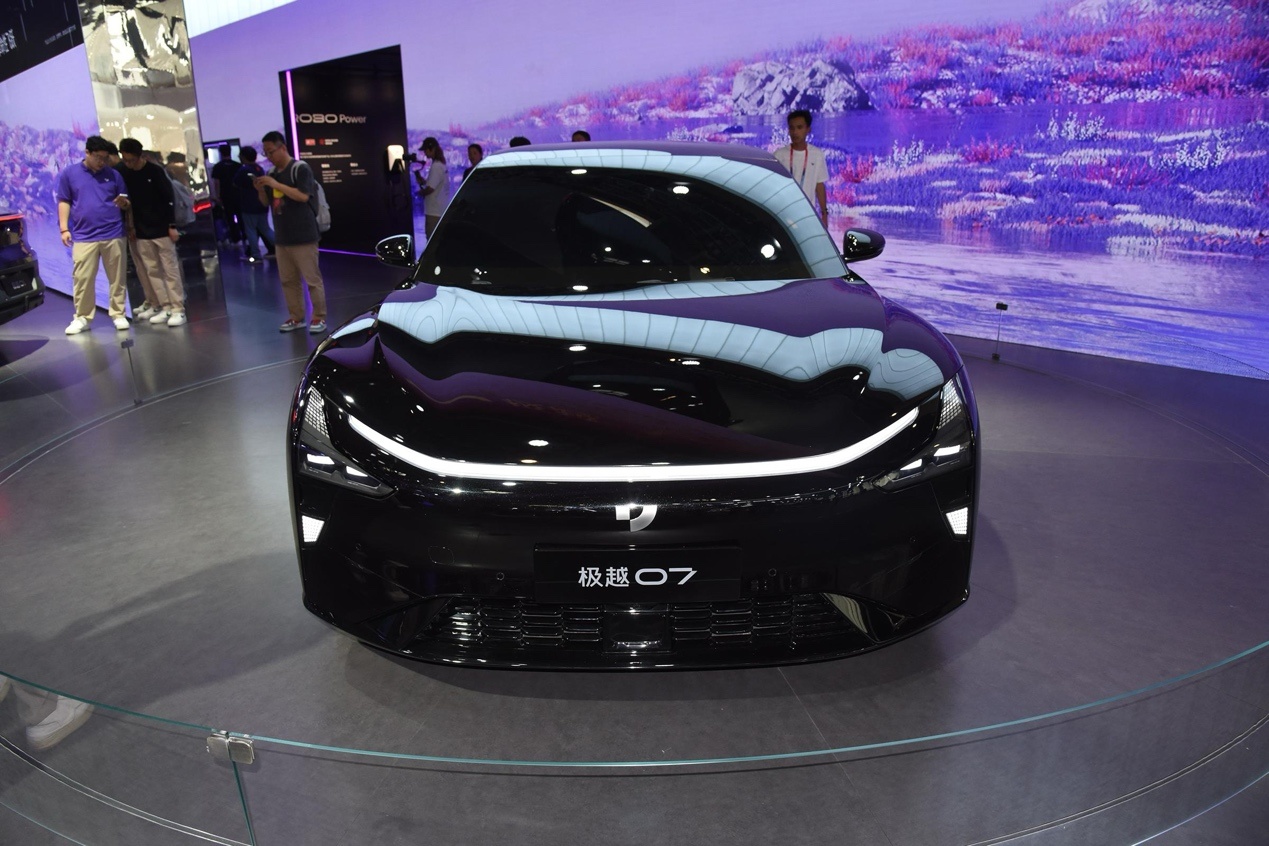

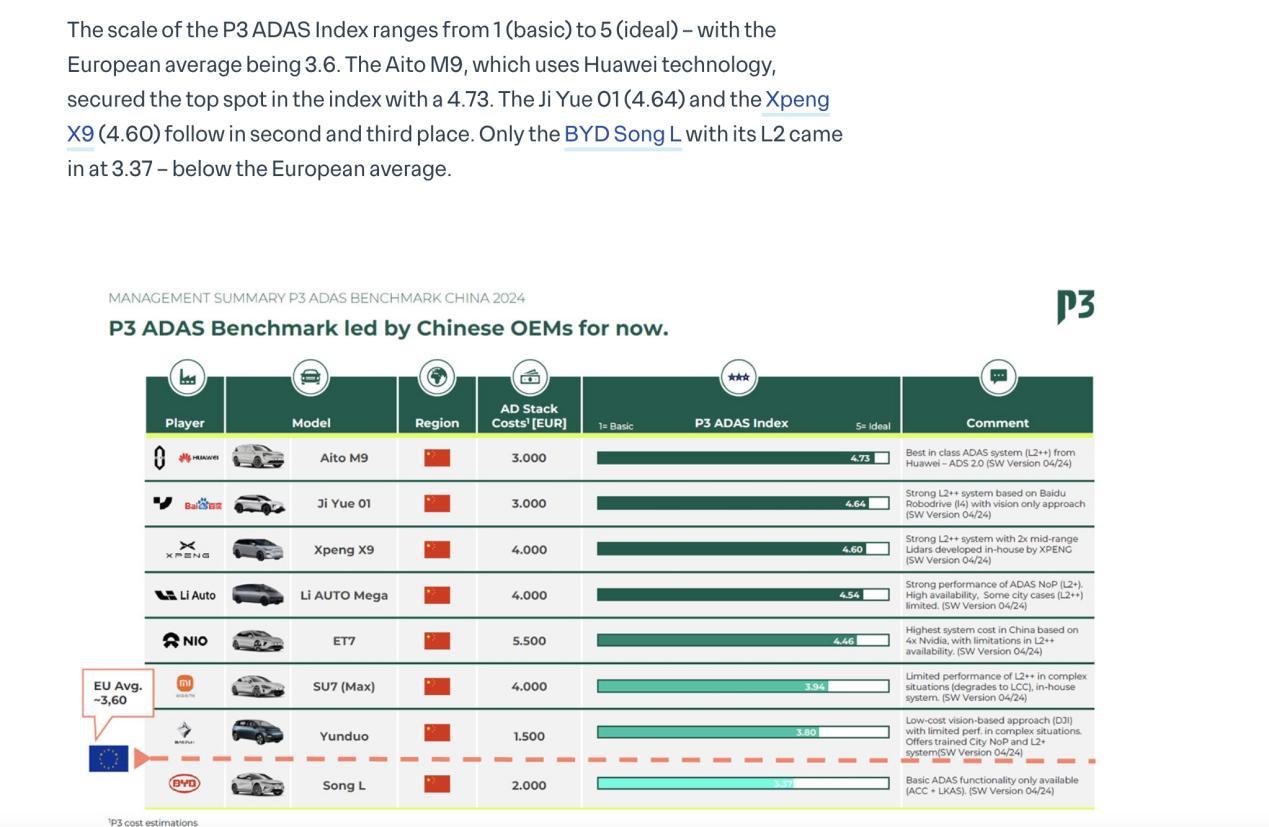
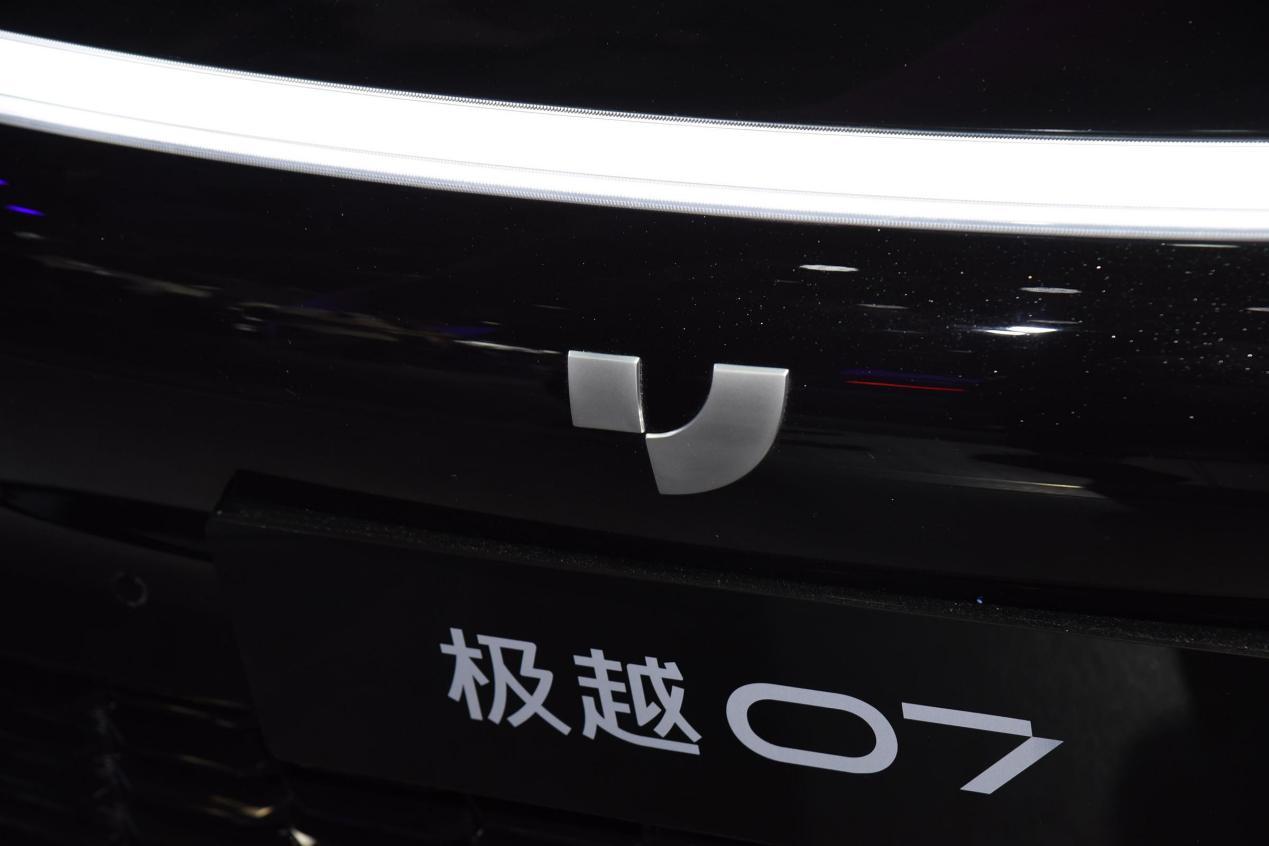

 Rational consumers may be more concerned about how the vehicle drives than high-level intelligent driving. Considering that Tucki P7+ only has a single-motor version and consumers’ pursuit of long battery life, we will make a simple comparison between Extreme Yue 07 2024 long battery life version and Tucki P7+ 2024 long battery life Max.
Rational consumers may be more concerned about how the vehicle drives than high-level intelligent driving. Considering that Tucki P7+ only has a single-motor version and consumers’ pursuit of long battery life, we will make a simple comparison between Extreme Yue 07 2024 long battery life version and Tucki P7+ 2024 long battery life Max.



